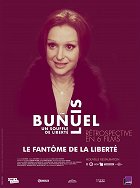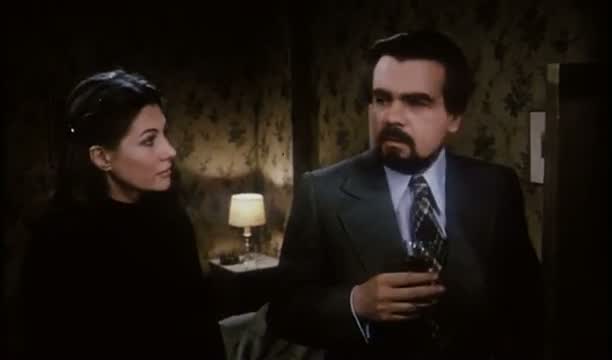Rendező:
Luis BuñuelOperatőr:
Edmond RichardSzereplők:
Adriana Asti, Jean-Claude Brialy, Adolfo Celi, Paul Frankeur, Michael Lonsdale, Michel Piccoli, Claude Piéplu, Jean Rochefort, Bernard Verley (több)Tartalmak(1)
Acclaimed Spanish filmmaker Luis Buñuel's (Belle de Jour) surrealist gem The Phantom of Liberty (Le Fantome de la Liberte) features everything you could possibly imagine in an absurdist comedy - from an elegant dinner gathering where guests are comfortably seated at toilet bowls, a poker game where monks bet religious medals as chips, to a scenario where police officers look for a missing girl who is right under their noses. This often perverse and unusual comedy combines many of the most outrageous themes that Buñuel juggled throughout his illustrious career - rich with striking imagery, passing both subtle and not so subtle comment on issues of the times, including conventional morality and social structure. (Umbrella Entertainment)
(több)Recenziók (1)
The works of Luis Buñuel are framed by two films. At the beginning of his career is the short experimental film, Un Chien Andalou, where he was still feeling out the terrain and exploring the possibilities of the genre and the medium of film. At the end of his creative journey stands an absurd and mischievous play on the illusion called freedom, composed of disconnected grotesque surrealist mini-stories. In it, Buñuel playfully toys with social conventions and human prejudices, mocking good manners and sarcastically striking his usual targets - conservatism and the prudishness of the church, as well as the arrogance and hypocrisy of bourgeois and bureaucratic layers. Buñuel looks skeptically upon the invoked freedom. We human beings are imprisoned by our surroundings, society, upbringing, emotions, instincts, and above all, our genes. Similarly to Lynch, Buñuel stopped taking external influences into account as he grew older and filmed for his own pleasure about what interests him the most. But while I find later Lynch films indigestible, Buñuel served me such a delicate film essence of the genre that I had to reevaluate a few other films in its light. Moreover, when it comes to the filmography of the Spanish surrealist, I have so far preferred the substantially more conventional The Discreet Charm of the Bourgeoisie. However, The Phantom of Liberty immediately catapulted to first place. Nevertheless, I would recommend not starting your contact with Buñuel with this film. If you prefer his more mainstream films, you will enjoy even more the brief appearances of his regular actors and the style based on sarcasm. I would save The Phantom of Liberty for the end, as it is too peculiar, deviating from what audiences are accustomed to and willing to accept. Overall impression: 95%.
()

